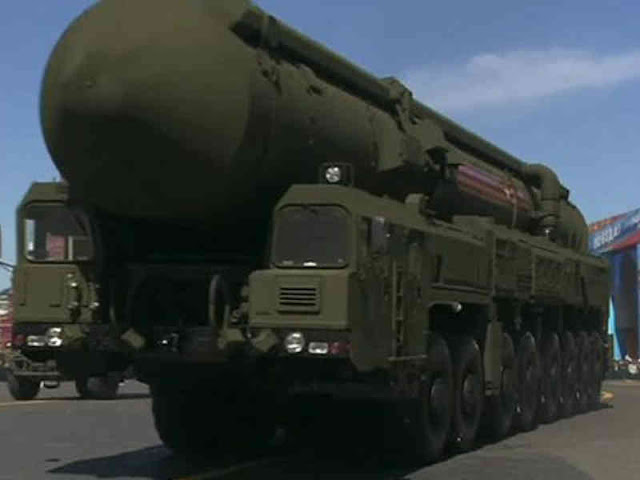Iranian Defense Minister Claims Tehran Tested a New Long-Range Ballistic Missile
 TEHRAN, LELEMUKU.COM - Iran is claiming to have fired a new long-range ballistic missile - dubbed the Hoveiseh - capable of hitting a target 1,300km away. Tehran claims that its ballistic missile program is intended solely for defensive purposes. A U.N. Security Council resolution called on Iran to stop work on ballistic missiles capable of carrying a nuclear warhead for a period of up to 8 years.
TEHRAN, LELEMUKU.COM - Iran is claiming to have fired a new long-range ballistic missile - dubbed the Hoveiseh - capable of hitting a target 1,300km away. Tehran claims that its ballistic missile program is intended solely for defensive purposes. A U.N. Security Council resolution called on Iran to stop work on ballistic missiles capable of carrying a nuclear warhead for a period of up to 8 years.Iranian state TV showed Defense Minister Amir Hatami unveiling what he says is a new 1,300km long-range ballistic missile at a ceremony, which was part of celebrations to commemorate the 40th anniversary of Iran's 1979 Islamic Revolution.
The TV channel also showed video of missiles being fired to support the defense minister's claim that the new longer-range Hoveiseh missile had been successfully test-fired. VOA could not independently confirm if the video represented the missile's actual test-firing.
Reuter's news agency quoted Amirali Hajizadeh, head of Iran's Revolutionary Guard's aerospace division, as saying that Iranian engineers had surmounted initial obstacles in building engines for its cruise missiles, and can now produce a complete range of such missiles. Western experts have frequently accused Iran of exaggerating claims about its military capabilities.
U.S. President Donald Trump withdrew from the 2015 nuclear deal with Iran in May of last year, accusing Tehran, among other things, of working to develop its long-range ballistic missile program. Iran insists that its ballistic missile program was not part of the 2015 deal with the U.S., France, Britain, Germany, China and Russia.
A separate U.N. Security Council resolution did, however, call on Iran to halt work on ballistic missiles designed to carry a nuclear payload for up to eight years. Tehran insists that its missile program is purely defensive and not designed to launch nuclear weapons.
Hilal Khashan, who teaches political science at the American University of Beirut, tells VOA that the just-announced Iranian missile launch comes in the wake of a European announcement to put together a mechanism to circumvent U.S. economic sanctions on Iran, which went into effect on November 4. Khashan thinks the new missile is simply a "negotiating ploy."
"Knowing how they operate, I think they want to negotiate. On the one hand they tell their people that 'we are sovereign and independent and don't accept foreign dictates,' and on the other hand this (appears to be) an invitation to the Europeans to negotiate with them."
Professor Khashan argues that Iran may be looking for a face-saving way to "reach an understanding" over its missile program. Iran, he points out, has indicated that it "would not allow the range of its missiles to exceed a range of 2,000km."
"I think," he says, "that they want to negotiate with the Europeans." The new Hoveiseh missile has a stated range of 1,300km.
Iranian President Hassan Rouhani recently admitted that his country was under serious economic pressure due to the November 2018 economic sanctions imposed by the US. (VOA)
Simak berbagai berita pilihan dan terkini dari Lelemuku.com di Grup Telegram Lelemuku.com. Klik link https://t.me/lelemukucom kemudian join/bergabung. Pastikan Anda sudah menginstall aplikasi Telegram di ponsel.
Lelemuku.com - Cerdaskan Anak Negeri